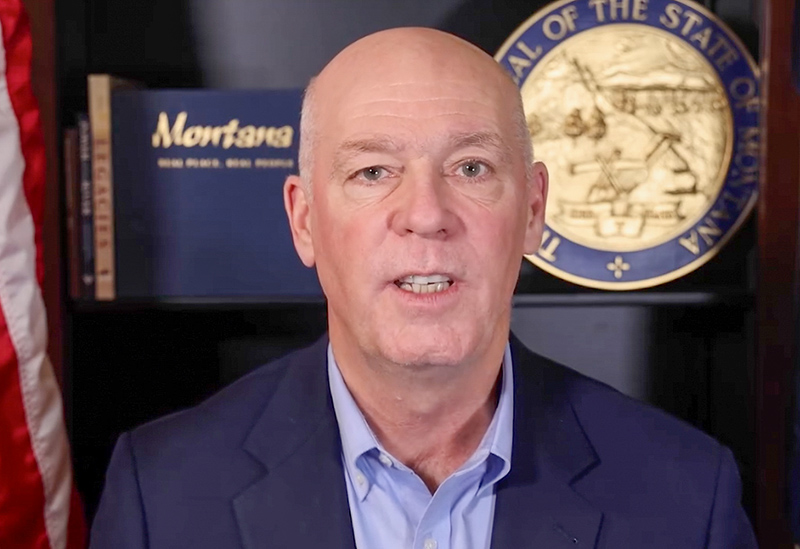Nikki Haley Alleges Mere Proximity to Trans People Makes Teen Girls Suicidal

Earlier this week, Republican presidential contender asserted that allowing transgender girls and women to compete in female-designated sports is leading to suicidal ideation in teenage cisgender girls.
Former U.S. Ambassador to the United Nations and former South Carolina Gov. Nikki Haley made the comment during a CNN town hall event in Iowa when asked by host Jake Tapper to define the term “woke” — a vaguely-defined term that generally refers to the embrace of identity politics and political correctness, with opposition to such ideas recently becoming central to Republican voters’ collective identity.
“There’s a lot of things. I mean, you want to start with biological boys playing in girl sports. That’s one thing,” Haley said. “The fact that we have gender pronoun classes in the military now, I mean, all of these things that are pushing what a small minority want on the majority of Americans, it’s too much. It’s too much.”
Haley continued, calling opposition to transgender athletes on female sports teams the “women’s issue of our time.”
“My daughter ran track in high school. I don’t even know how I would have that conversation with her,” she added. “How are we supposed to get our girls used to the fact that biological boys are in their locker rooms? And then we wonder why a third of our teenage girls seriously contemplated suicide last year. We should be growing strong girls, confident girls.”
Haley’s response appears to be conflating or confusing different talking points on various issues related to LGBTQ identity.
Typically, conservatives and liberals will admit that gender dysphoria — the feeling of one’s body not aligning with the gender with which a person identifies — can lead to suicidal ideation among transgender-identifying youth. Conservatives typically claim that merely embracing the idea that one can have a gender identity that does not match one’s biological anatomy is what leads to feelings of depression and suicidal thoughts, while liberals argue that such feelings are the result of societal rejection of gender-nonconforming youth.
But such statements usually apply to transgender youth, not to the cisgender youth who are in mere proximity to trans-identifying individuals.
With respect to transgender participation in sports, conservatives typically claim that forcing cisgender girls and women to compete against transgender athletes with physiological advantages is unfair or denies them special awards or opportunities. But rarely have even the most staunch advocates of transgender athlete bans linked cisgender females athletes’ myriad feelings about competing against trans individuals, or potentially sharing locker room facilities with them, to increased suicidal ideation.
But in a statement to NBC News, Haley doubled down on her comments.
“We have to grow strong girls, and that is being threatened right now,” she said. “Whether it’s biological boys going into girls’ locker rooms or playing in girls’ sports, women are being told their voices don’t matter. If you think this kind of aggressive bullying isn’t part of the problem, you’re not paying attention.”
But several mental health experts and LGBTQ advocates expressed both outrage and skepticism about Haley’s claims.
“If there is one thing I can promise in this world, and stake my entire knowledge and expertise as a suicidologist on, it’s that young teenaged girls are not made more suicidal by the presence of trans people,” tweeted Tyler Black, a child and adolescent psychiatrist who studies suicide and mental health at the University of British Columbia in Vancouver, in Canada.
A female Twitter user replied to Black’s tweet, writing: “As a young woman (not teen) decades ago I met a trans woman for the first time in a bathroom. It was a bar, and she was dressed to the nines. She was outgoing and spoke to me. While I was aware she was ‘a guy’ I felt curious/surprised, not fearful, and definitely not suicidal.”
Anne Marie Albano, a clinical psychologist and founder of the Columbia University Clinic for Anxiety and Related Disorders, tweeted: “If Nikki Haley cared about kids, she’d state that surveys show teens are worried about violence & hate being perpetrated against their peers, about gun violence, climate & political unrest in the US. And, she’d do something about all that & not tell lies.”
Albano included a screenshot of what looks like a PowerPoint slide also noting that grades and school achievement, being socially accepted by others, concerns about the future, and access to technology also create the type of worry that can lead to suicidal ideation. Not included on the slide are other potential stressors, such as the nasty comments that teens can receive from one another or trolls on social media platforms.
If Nikki Haley cared about kids, she'd state that surveys show teens are worried about violence & hate being perpetrated against their peers, about gun violence, climate & political unrest in the US. And, she'd do something about all that & not tell lies. https://t.co/Wzwq6cihTd pic.twitter.com/Km9Ei5g1f5
— Dr. Anne Marie Albano (@AnneMarieAlbano) June 5, 2023
The Centers for Disease Control and Prevention has released comprehensive studies about a rise in suicidal ideation in teenage girls and LGBTQ students, but no connection was drawn between the presence of transgender youths in schools or on sports teams and whether that leads to suicidal thoughts among teenage girls, according to NBC News.
Some LGBTQ advocates argue that it’s actually transgender youth, not cisgender females, who are more likely to experience feelings of isolation and depression, as well as societal rejection — which in turn can put youth at higher risk of experiencing suicidal ideation — due to inflammatory statements or laws demonizing the LGBTQ community.
“These ongoing attempts from right-wing extremists to paint LGBTQ+ people as dangerous is harmful and disturbing — and this rhetoric has a serious impact on LGBTQ+ youth,” Melanie Willingham-Jaggers, the executive director of GLSEN, said in a statement. “Research shows that 41% of LGBTQ+ youth seriously considered attempting suicide in the past year. Safe, affirming learning environments save lives, and we must support leaders who will fight for inclusivity in schools.”
Support Metro Weekly’s Journalism
These are challenging times for news organizations. And yet it’s crucial we stay active and provide vital resources and information to both our local readers and the world. So won’t you please take a moment and consider supporting Metro Weekly with a membership? For as little as $5 a month, you can help ensure Metro Weekly magazine and MetroWeekly.com remain free, viable resources as we provide the best, most diverse, culturally-resonant LGBTQ coverage in both the D.C. region and around the world. Memberships come with exclusive perks and discounts, your own personal digital delivery of each week’s magazine (and an archive), access to our Member's Lounge when it launches this fall, and exclusive members-only items like Metro Weekly Membership Mugs and Tote Bags! Check out all our membership levels here and please join us today!
























You must be logged in to post a comment.